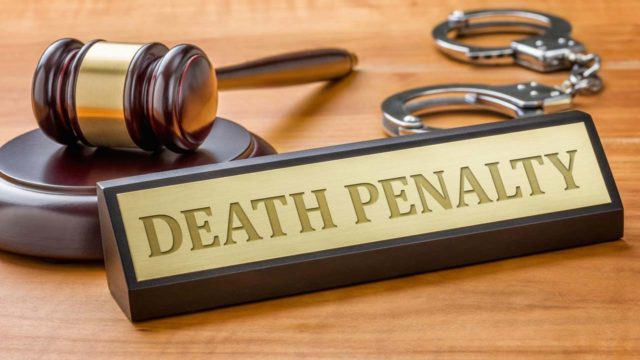The Public Relations Officer of the Nigeria Correctional Service, Mr Francis Enobore, has stated that not all the 3,008 inmates on death row are meant to be executed immediately.
The Minister of Interior, Rauf Aregbesola, had recently urged state governors to sign the death warrants of the 3,008 condemned criminals waiting for execution, especially those whose appeals had been exhausted, as part of measures to decongest prisons nationwide.
Enobore, while speaking with our correspondent on Wednesday, said it was not true that the Minister of Interior told the state governors to sign the death warrants of over 3,008 inmates on death row in order to decongest the prisons in Nigeria.
He said, “The Minister only told the governors to do the needful. The question now is, ‘what constitutes the needful?’
“It should be noted that not all the 3,008 inmates on death row have exhausted their right of appeal up to the Supreme Court. The fact that a person has been sentenced to death by a court of competent jurisdiction does not mean the person should be executed.
“There are three options which constitute the ‘needful’ that Aregbesola was talking about. One of the options open to governors is to sign the death warrants of those who have exhausted their right of appeal; the second is to commute the death sentence into life imprisonment; and the third is to grant them pardon.”
“One way to reduce the number of people on death row is to commute their death sentences into life imprisonment. Besides, the main reason for the increase in death row is the high rate of crime in the country. Some of the crimes being committed are those which attract capital punishment, such as murder and armed robbery.”
But legal practitioner, Ige Asemudarai in an interview with our correspondent, said there had been agitation by some human rights advocates on the need to abolish death penalties.
“Some of the offences which attract death penalties, like armed robbery and murder, are those related to the taking of life. What matters most is that the process of bringing the convict to justice is in accordance with the rule of law.
“If the law states that governors ought to sign death warrants, then they should. However, if the majority of Nigerians believe that death penalties should be abolished, then they should mandate the National Assembly to abolish it from our laws.
“It is an issue of law and the law ought to be followed, therefore, governors should play their part. If the convicts have exhausted their right of appeal, then I see nothing stopping governors from signing the death warrants,” Asemudarai said.
Another lawyer, David Akpeji, said the most important question to ask was whether death penalty was still fashionable in present times.
He said, “Some local and international organisations have clamoured for the law on death penalty to be abolished. In fact, some countries in Africa have abolished this law.
“Since 1999 till this moment, only the former governor of Edo State, Adams Oshiomhole, has belled the cat by signing the warrants of condemned prisoners to death. This shows the general aversion of the governors in signing death warrants.
“It has been rightly argued that some of the prisoners condemned to death may, in fact, be innocent. Also, even after exhausting their right of appeal, condemned prisoners are left indefinitely on death row because of the governors’ Pontius Pilate complex. This puts the convict in perpetual trauma and emotional stress, patiently or impatiently waiting for the hangman’s noose. This could be avoided if executions are carried out without unnecessary delay.”

